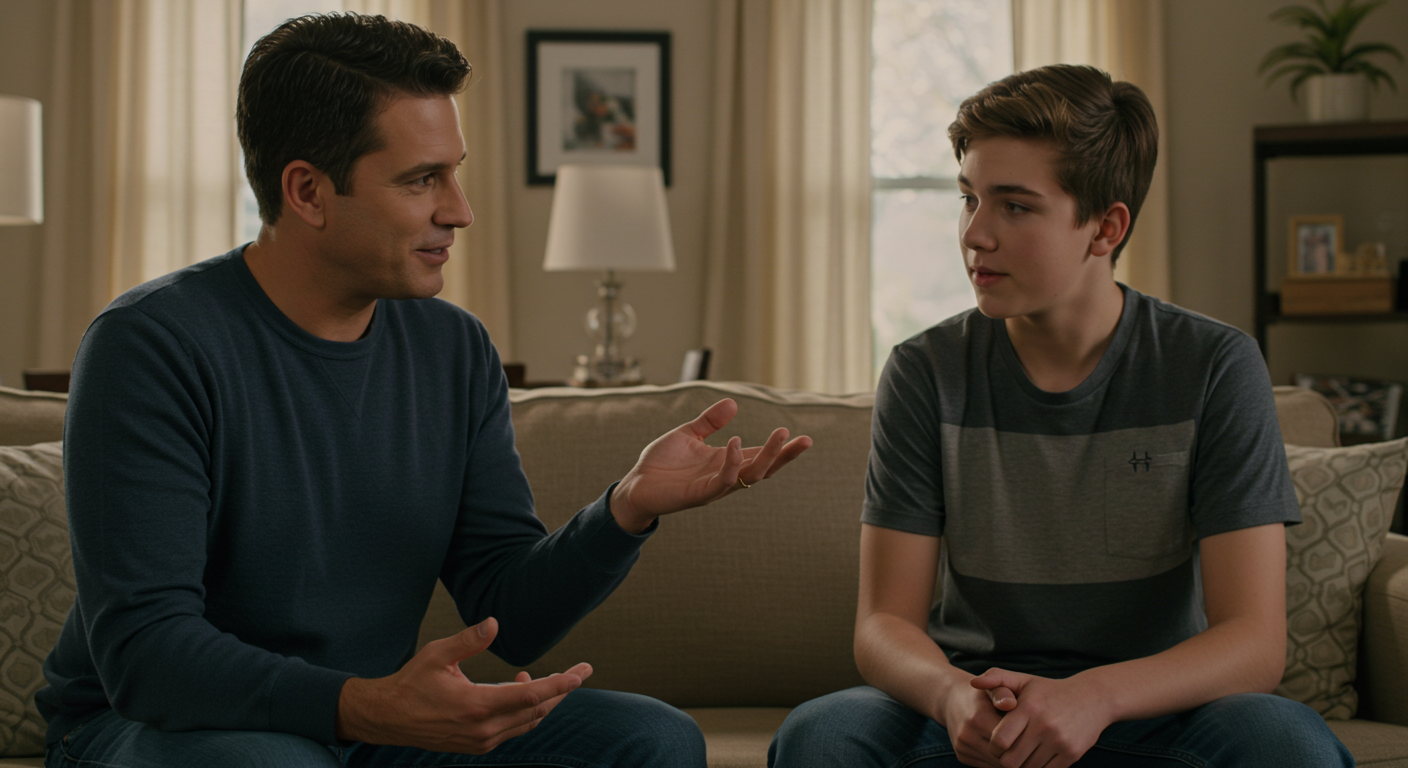Raising Teens: Be a Parent First
Your child needs you to be a parent more than anything else. Deep down, teenagers crave structure—even when they act like they don’t. They want someone they can rely on to set healthy boundaries and offer steady guidance. While it might be tempting to become their friend in an effort to stay close, friendship alone is not always a healthy parenting approach.

Parenting Isn’t Always Easy—But It’s Necessary
Being a good parent doesn’t mean saying yes to everything. It means being present, dependable, and sometimes saying “no” for their own good. As your teen grows, you’ll face tough moments and inner conflict when making decisions. But remember: your consistency helps shape their character and prepares them for real-world challenges.

You Can Be Friendly Without Giving Up Authority
Being a parent doesn’t mean being cold or distant. You can still be warm, loving, and approachable. But don’t confuse friendliness with giving up your role as the authority figure. If you’re too afraid to set limits out of fear that your child might withdraw emotionally, you may unintentionally leave them without guidance. Teens need direction just as much as they need freedom—and both must come with balance and love.

Parental Love Runs Deeper Than Friendship
The love you offer as a parent is stronger, deeper, and more enduring than friendship. It’s a love that protects, empowers, and shapes your child. For example, if your teen wants a part-time job, don’t just say yes or no impulsively. Sit down and discuss their motivations, how they’ll manage school and work, and what their responsibilities will be. If you decide it’s not the right time, explain why. This kind of dialogue fosters trust and maturity.

Don’t Let Overprotection Block Growth
Overprotective parenting—saying “no” to everything out of fear—can do more harm than good. It may keep your child safe in the short term, but it stunts their ability to develop independence and resilience. If your daughter wants to attend a party, take time to ask thoughtful questions about the setting, who will be there, and what the plan is. Saying “no” isn’t wrong—but explaining the why behind your decision teaches valuable life lessons.

Avoid Overcompensating for Your Past
Sometimes, in an effort to give our kids what we lacked, we overcompensate—filling their lives with gadgets, privileges, and leniency. But giving too much, too easily, can breed entitlement. Teenagers who never experience the value of earning something may struggle with gratitude and responsibility. Instead, help them understand that effort and reward go hand in hand.

Go Beyond Friendship—Be Their Guide
Friendship is fun—sharing laughs, watching movies, trading secrets. But parenting goes beyond that. It’s about showing up through hard times, setting standards, and lovingly correcting behavior. If you’re too focused on being their buddy, you may hesitate to discipline them—and that’s when structure begins to erode.

The Entitlement Trap
Entitled behavior can sneak in when kids are given too much without expectations or consequences. It becomes harder to correct the older they get. That’s why early action matters. Set clear boundaries, teach the value of hard work, and don’t shy away from consistent discipline. Make it clear that privileges are earned, not handed out freely.

It’s Not Too Late to Begin Again
You can always choose to parent with purpose. Start today. Raise children who are kind, responsible, and respectful—ready to face life with wisdom and strength.
-
Set boundaries.
-
Enforce consequences with love.
-
Model hard work and responsibility.
-
Be consistent.
-
Stay approachable but firm.
Let’s raise a generation that knows the value of effort and the strength of character.
Be a parent. Your child needs that more than anything.


